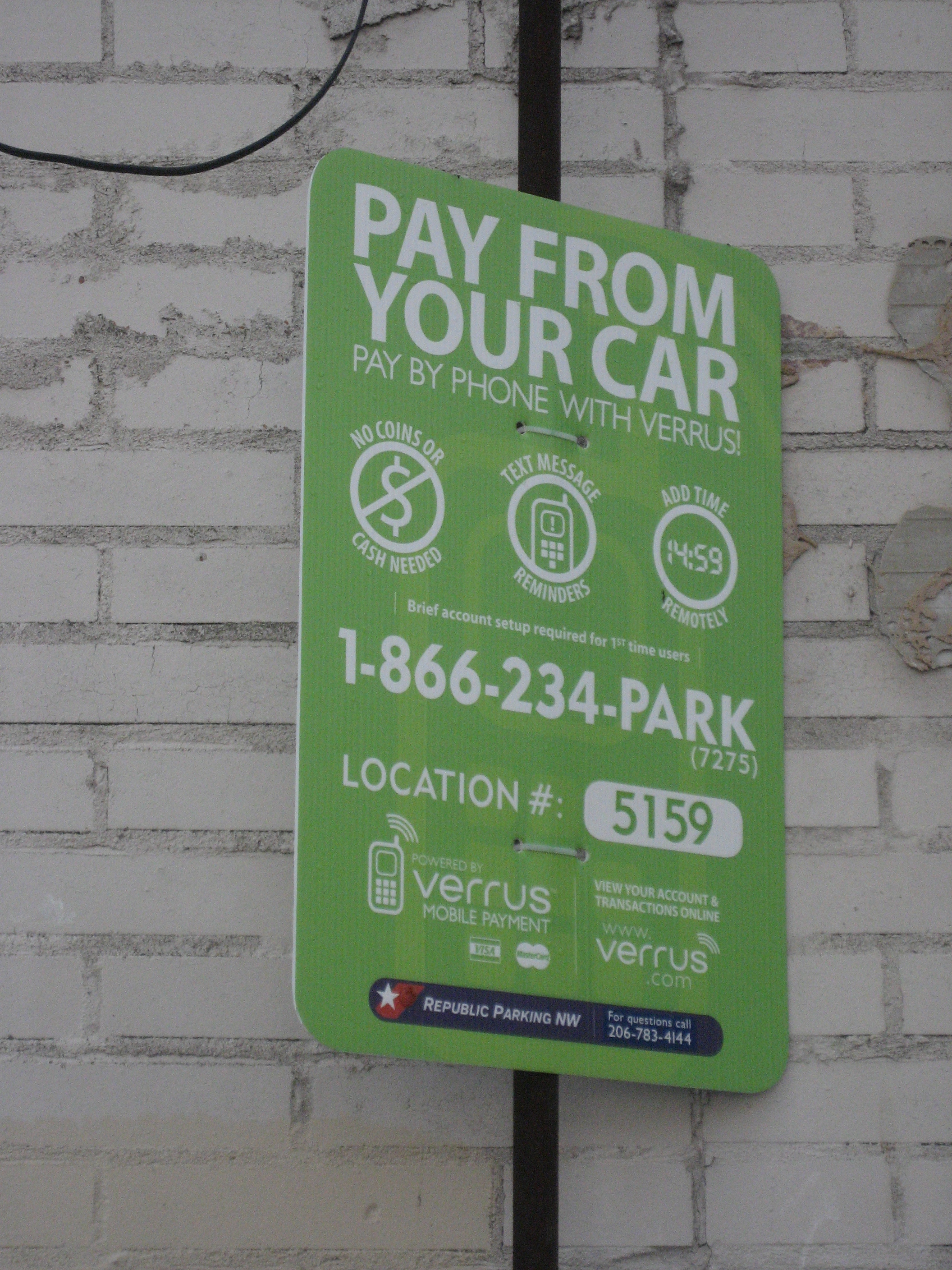 While on my Christmas vacation to Seattle (and the interior of British Columbia – see videos here) we had time to stop and see the Space Needle in downtown Seattle. While parking the car, I noticed this sign and its implications:
While on my Christmas vacation to Seattle (and the interior of British Columbia – see videos here) we had time to stop and see the Space Needle in downtown Seattle. While parking the car, I noticed this sign and its implications:
Use your mobile phone to pay for the parking in this parking lot.
Years ago, many of my friends in Nortel Wireless division made a lot of hay about the prospects of mobile payment systems and services. The visionaries would brag about the prospect of using your mobile phone to trigger a transaction at a vending machine that would appear on your mobile bill. That was more than a decade ago.
There were several big reasons why it never took off:
- Old fashioned transaction methods – cash or credit card – have 0% and 1.5% transaction fees respectively. Mobile operators would need more like 5% to recover their costs.
- Mobile services companies have enormous credit risks in their networks and in getting customers to pay for what they commit to paying with their service agreements. Bad debts are surprise, bad if you have 'em, and worse if you take on more.
- Using the mobile phone to pay for things positions the mobile operator as a consumer financier, something that its current credit rating (excellent) may not tolerate in these troubled times. Besides it's one thing for a mobile operator to write off 1000 minutes of bad debt, it's another thing to write off $1000 of bad debt.
- Years ago thieves stole people's cell phones and cell phone radio identifications and made long distance calls with these forged identities. I remember that in 1995, (the year I bought a digital PCS phone which avoided this problem completely), mobile fraud was a $700 million a year problem. Today, of course, it's gone away. Making the mobile phone as valuable as a credit card may also restart nefarious focus on overcoming the security of mobile phones, which would have nasty ramifications for the broad safety and mobility value we get from mobile communications.
Despite the ubiquity of modern mobile communications, it is likely that it will remain just that – a communications platform – and that it won't adopt the attributes of your wallet.







